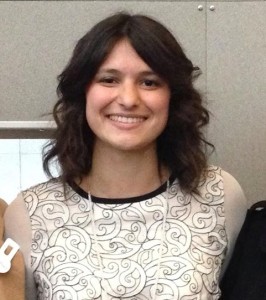
In September, the world’s heart bled in response to photographs of three-year-old Alan Kurdi, whose lifeless body washed onto the shores of Turkey after he drowned in the Mediterranean Sea.
The tragedy prompted an outpouring of international support, from hashtag trends and Facebook posts to Google fundraisers and presidential promises. It looked as though we had realized the damage we had done in turning our backs to the Syrian refugees, that we would now do all we could to help the millions displaced by war.
Since then, it seems the wound has been cauterized.
* * *
Two weeks after the attacks in Paris, the death toll continues to rise and words continue to fail me. The horror of what took place—the hatred, the inhumanity—is unconscionable. With 130 lives stolen and hundreds more irreparably damaged, the world is shocked, shaken.
We want justice for the victims. We want the perpetrators punished. We want to bomb the Islamic State into oblivion, and we want to mercilessly destroy the jihadists who so mercilessly slaughtered our friends in France. We want, we want, we want. But by operating out of anger and fear, we have played right into ISIS’s hand.
An Islamophobic backlash akin to the aftermath of 9/11 has gripped the United States and its allies. In Toronto this week, two women wearing hijabs were called terrorists and pushed by fellow commuters. At the Islamic Centers in Florida and Texas, respectively, a firebombing threat was levied and several Qurans were defiled with feces.
In the past week, thirty-one governors have publicly stated they will not accept Syrian refugees. The mayor of Roanoke, Virginia wrote a letter opposing Syrian immigrants, ignorantly stating they threaten the U.S. much as Japanese Americans did during WWII. And Thursday, the House of Representatives passed HR 4038, a bill that would effectively halt the immigration process for Syrian and Iraqi refugees. From national security concerns to claims of undue economic burden, our politicians and fellow citizens have offered a plethora of arguments in favor of shutting the doors to Muslims.
Perhaps all this sounds familiar. That’s because it is.
In the years leading up to World War II, increasingly hostile conditions in Nazi Germany convinced thousands of Jews they could no longer remain in their country. However, the international community overwhelmingly refused to help them. As the U.S. Holocaust Memorial Museum reminded us earlier this week, we are “acutely aware of the consequences to Jews who were unable to flee Nazism.” Surely, we would not dare risk consigning Syrians to a similar fate.
In the aftermath of the Paris attacks, we have allowed ourselves to become divided. We have lost sight of Alan Kurdi and his family, replacing them with images of ISIS militants. Fear has burned away our empathy for millions of innocent people, and it has handed the extremists a victory they do not deserve.
Jihadism—indeed, any form of terrorism—thrives on fear. It feeds on division and prejudice; no other fuel will do. As my friend Kiel Majewski, Executive Director of CANDLES Holocaust Museum, wrote earlier this week, “Islamic State’s only real hope for expansion is to try to draw Western powers into a quagmire of a war—both a military war and an ideological war against Muslims. They’ve said as much.”
Like other extremist groups, ISIS is attractive to people who have been rejected by the rest of the world. As Madeleine Albright stated earlier this week, “Our enemies have a plan. They want to divide the world between Muslims and non-Muslims…between the defenders and attackers of Islam.” In turning away refugees, we unnecessarily give them access to their strongest recruitment tool. Now, if we want to stifle the flames they have so capably tended, we must cut off their fuel source.
We must do the opposite of what ISIS expects from us. We as an international community must stand as a united front against terror and xenophobia.
Rather than proposing anti-immigration policies as part of a knee-jerk reaction to terror—which, I’ll reiterate, is what ISIS wants us to do—we must pause, take a look at the facts, and make decisions grounded in logic. 50% of Syrian refugees admitted to the U.S. thus far have been children. By contrast, a mere 2% have been men of military age. And before any of them were allowed to settle in the U.S., they had to pass intensive screening processes with the Department of Homeland Security, the FBI, the Pentagon, and the National Counterterrorism Center. Nine non-governmental organizations were also consulted in the process. All this takes an average of two years. Even if we refused to dismiss concerns that a terrorist could make it through such extensive scrutiny (which, though unlikely, I admit remains a possibility), we would have to concede it as a remarkably inefficient and high-risk means of waging jihad. We have a system that works; we need to trust it.
In this challenging time, we must look to our allies, who have taken far greater risks to help the Syrian refugees. Turkey has accepted nearly 2 million refugees; Lebanon and Jordan have welcomed over 1 million and half a million, respectively. Germany has promised to accept up to 800,000. Even France—post-Paris attacks France—is still willing to take in 30,000 Syrians. In the face of evil, they have held steadfast to their ideals.
I am confident the United States is capable of doing the same.
—
Sophie Lombar do is a sophomore double-majoring in history and political science at Washington University in St. Louis. Sophie’s current research interests include international human rights law and genocide studies, and she serves as a member of theIllinois Holocaust Museum in Skokie’s Generation to Generation program.
do is a sophomore double-majoring in history and political science at Washington University in St. Louis. Sophie’s current research interests include international human rights law and genocide studies, and she serves as a member of theIllinois Holocaust Museum in Skokie’s Generation to Generation program.
